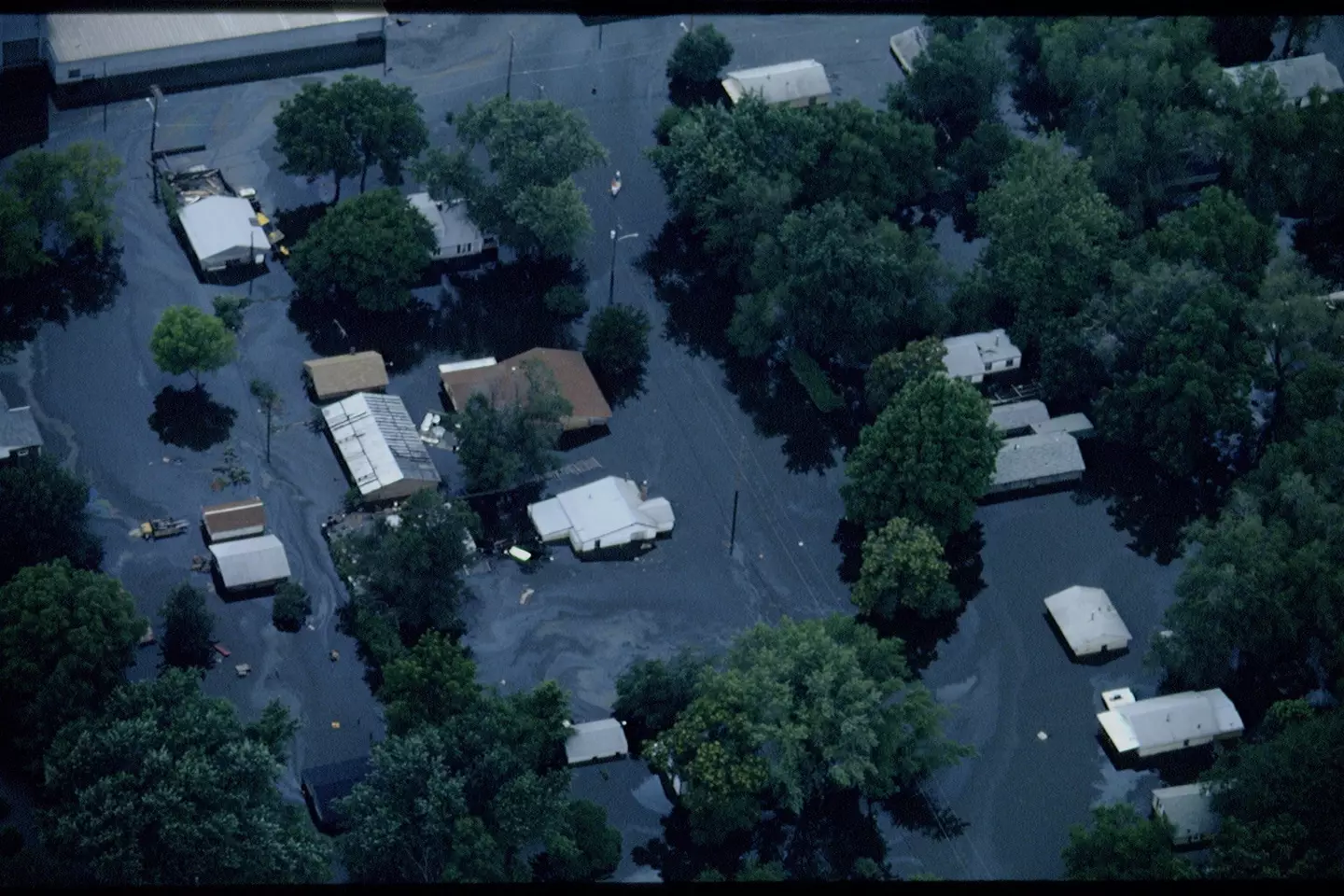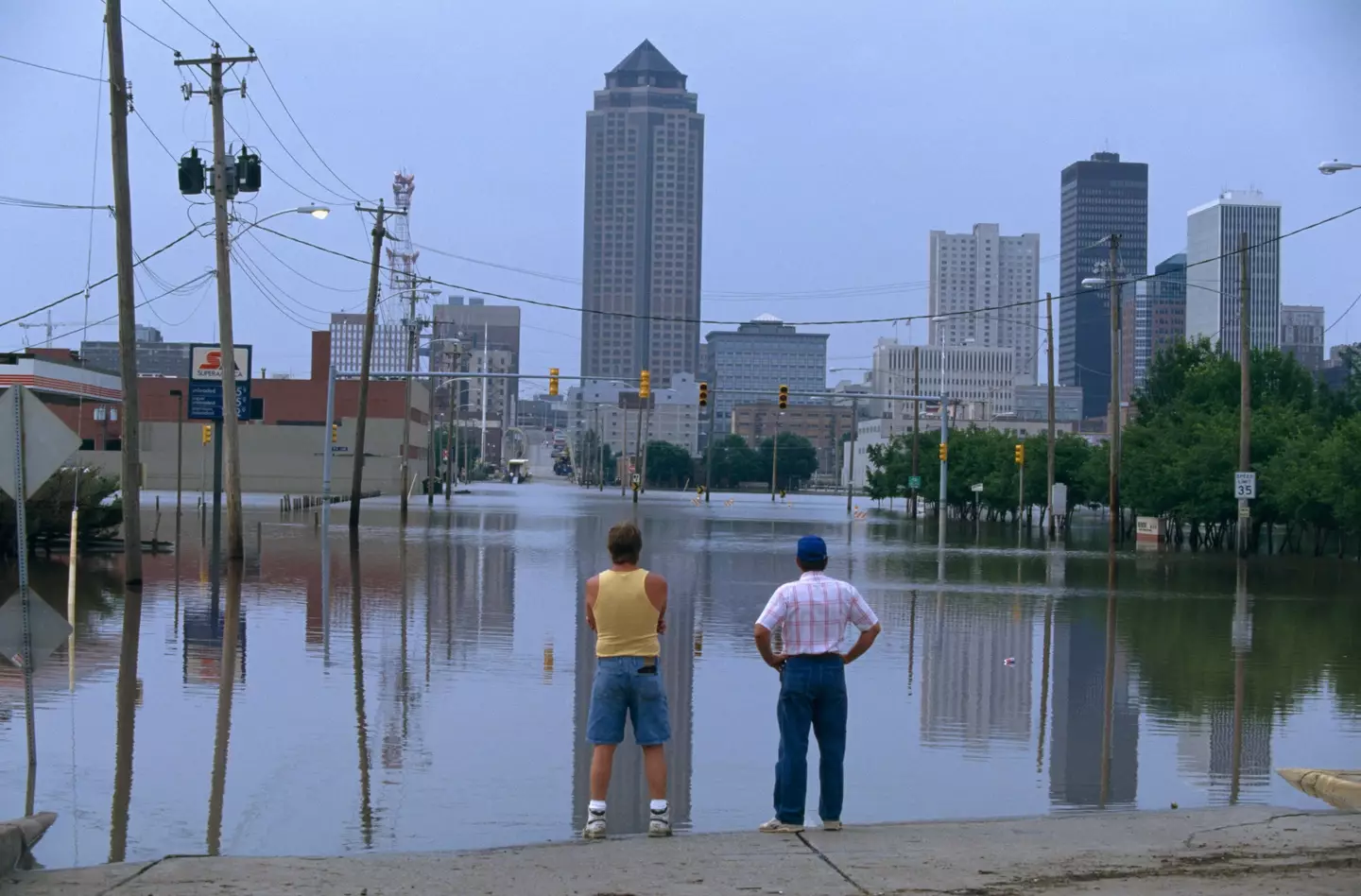.jpg)
What's the furthest you've ever gone to get something you want?
Maybe using a bit of reverse psychology, or relying on someone's sympathetic side?
How about creating a flood so bad that it lasted five months and caused billions of dollars in damage?

Advert
Not many people have done that, but one man accused of doing so was Missouri man James Scott.
If you're familiar with The Great Flood of 1993, then you might be familiar with Scott - but if not, then buckle in.
It all began in 1992, when a wet end to the year resulted in abnormally high soil moisture and reservoir levels in the Missouri and Upper Mississippi River basins.
Storms and heavy rainfall continued over the following months, and eventually the current became so strong that it blew out the levees - designed to hold back the river - from Iowa to Missouri.
Though more than 1,000 levees ultimately failed during the Great Flood, Scott was found guilty of breaking one of those levees.
Attention on Scott began after he was interviewed by a local television station and revealed he'd seen seepage at one of the levees.
"I tried throwing sand bags, you know, and it didn't work," Scott said.
Noting the levee had last been inspected two hours before the breakage, authorities became suspicious and brought Scott in for questioning.
He was initially released, but he was arrested again in October 1993 on an unrelated burglary charge, and told police that he had removed several sand bags from the levee just before the flood, CourtTV reports.
He claimed he'd only removed the bags to point out a problem area in the levee, but one witness later claimed that Scott had told his friends a different story.
Scott's wife at the time worked at a restaurant in Taylor, Missouri, and the witness claimed that Scott had told him that if his wife was stranded due to the water, he could 'party' and that it would 'create ideal fishing conditions'.

The state theorized that Scott was motivated to either remove or cut the plastic sheets on the levee before burrowing into the sand, causing water to rush in.
In the Great Flood of 1993, 47 people died and approximately 54,000 people had to be evacuated. Losses were estimated at between $15 to $20 billion.
Scott was consequently tried, convicted and sentenced of Intentionally Causing a Catastrophe - a Class A Felony.
He was sentenced to 20 years-to life in prison, but in 2018, Scott conducted an interview in which he maintained his innocence.
Speaking to ABC17, he said: "I can’t sit here and prove to you that I did not break the West Quincy Levee. Yet, they never proved at my trial that I did. Because I did not break the West Quincy Levee.
"The judge said, ‘We found you guilty on circumstantial evidence.’ I’m thinking, ‘Yeah, I know you did.’ There was no solid evidence.”
Scott continues to insist that the levee failure was simply the result of Mother Nature.
Topics: Crime, Environment, Money, Nature, US News